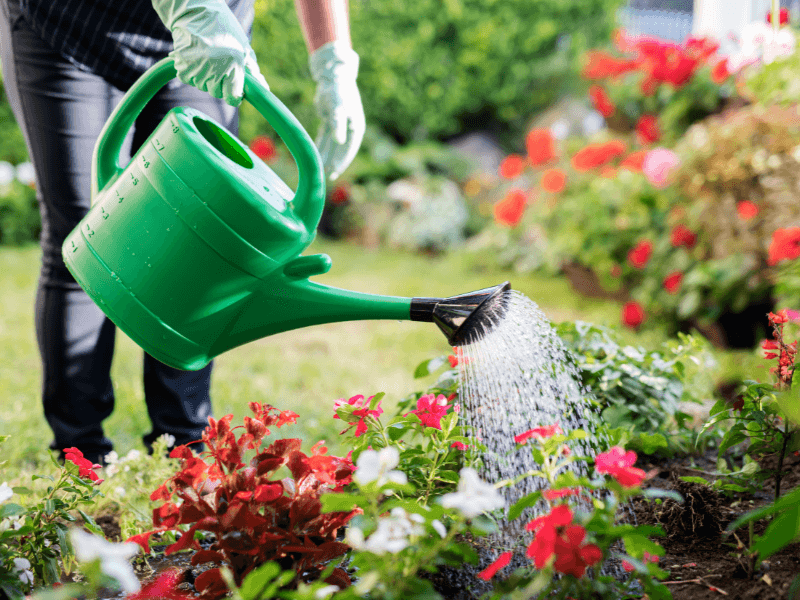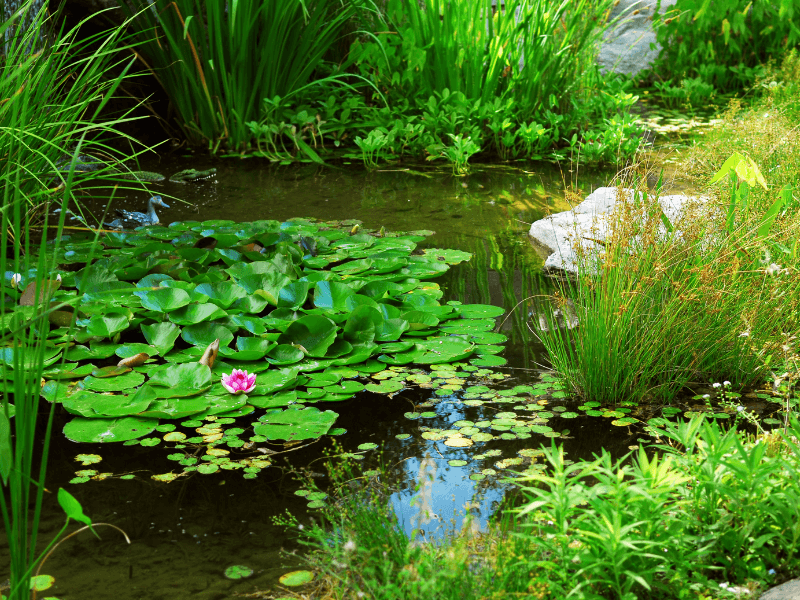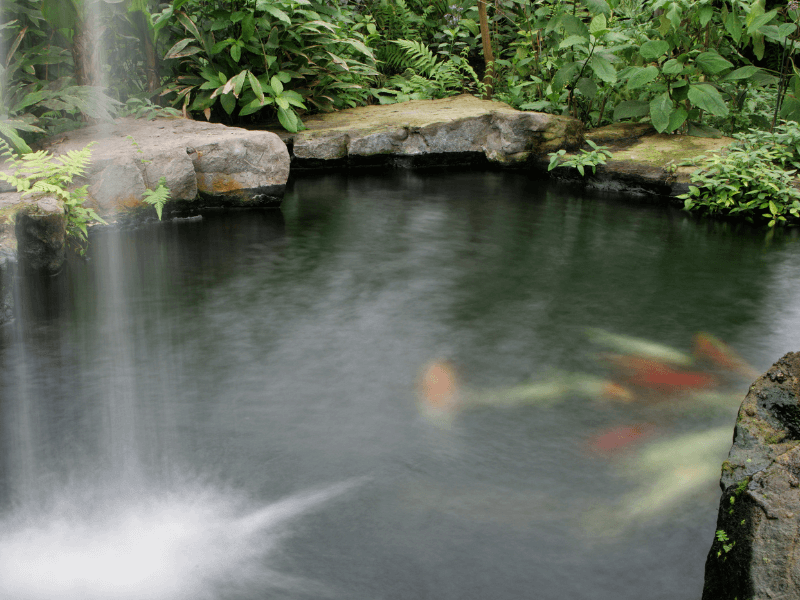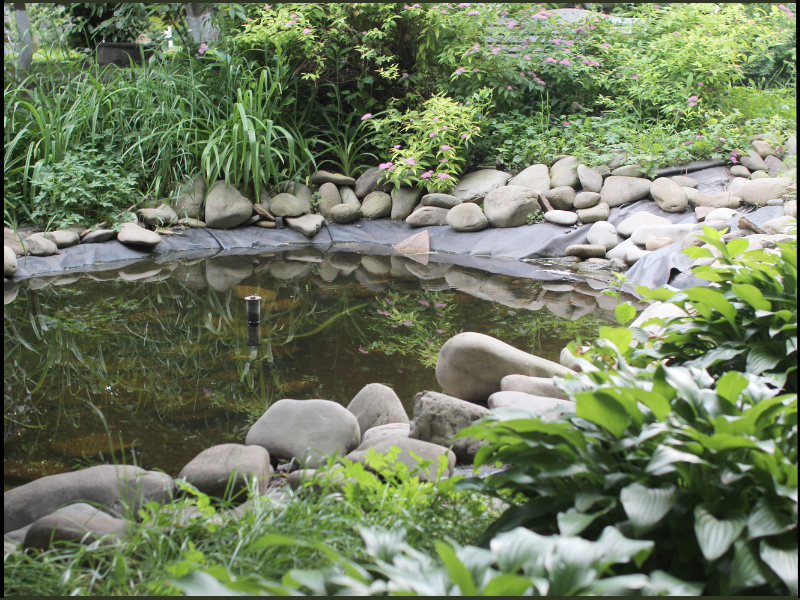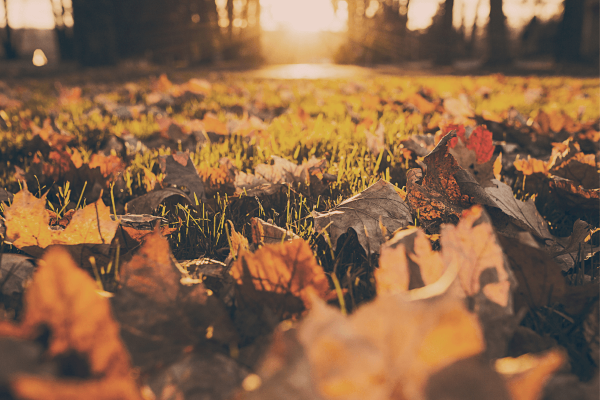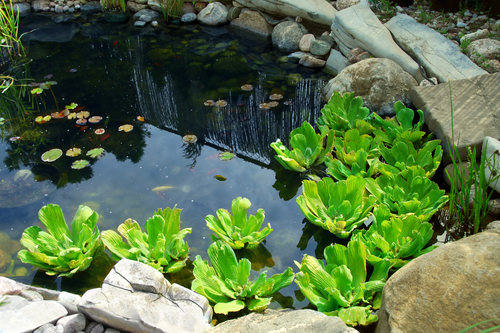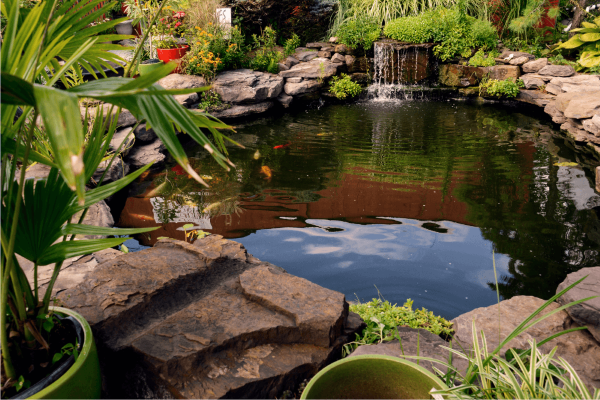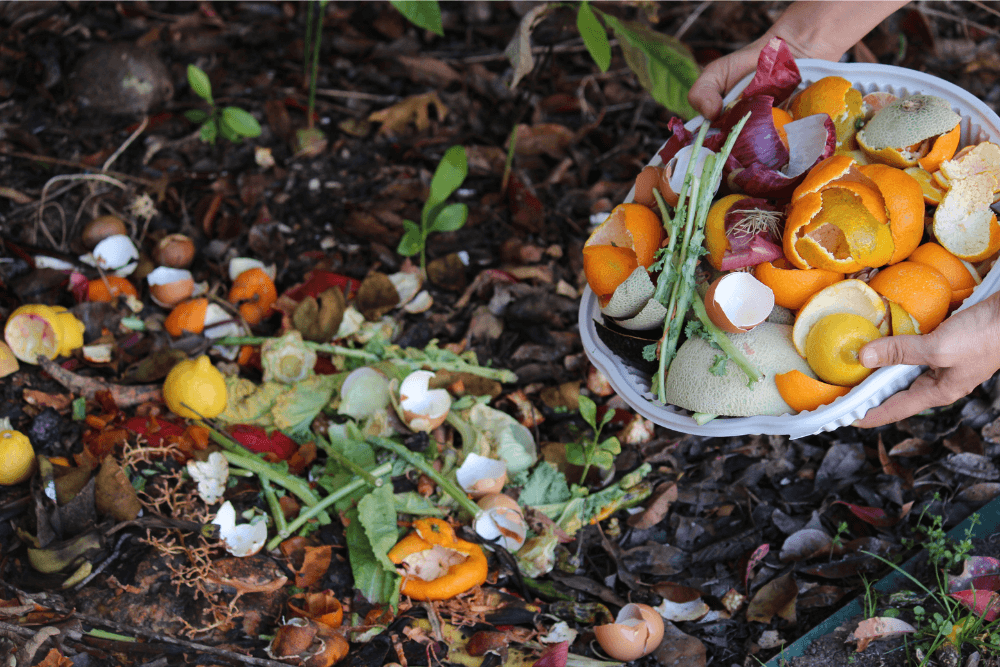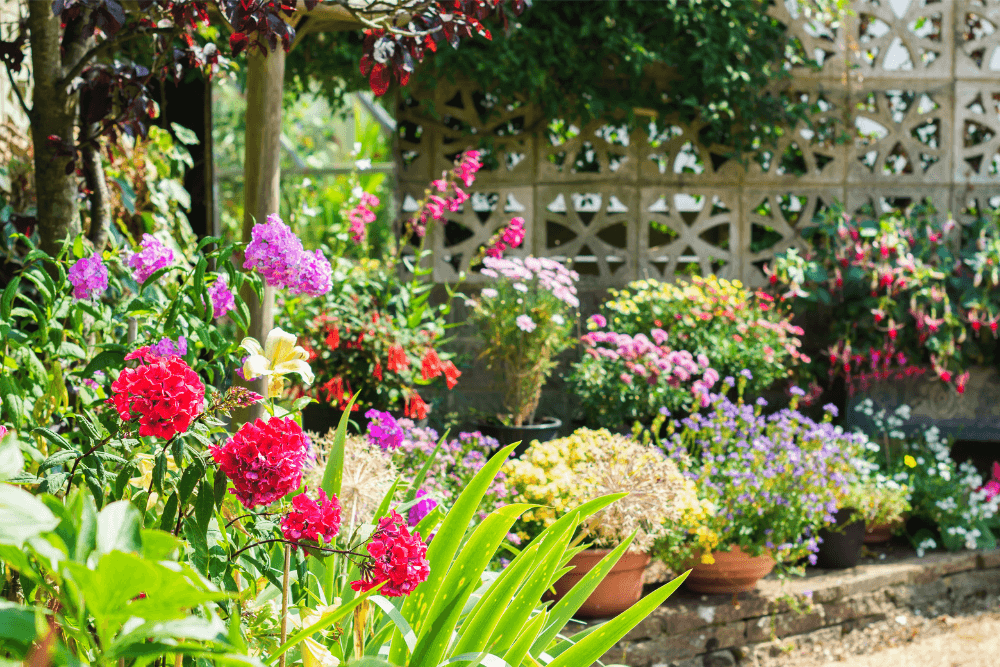June 2025 is going down in history as the warmest on record. the changes in climate are having a devastating effect to wildlife, gardens and our ponds (farmers too!). We need to be mindful of the long dry periods and steps we can take to help our ponds continue to thrive.
We always advocate lining with rubber pond liner because they are resistant to UV rays.
According to Mike Jeffries, Associate Professor in Ecology at Northumbria University, garden ponds are more than just an attractive feature, they also play an important role in helping combat climate change. We already know that ponds increase garden biodiversity and help prevent flooding by slowing down the flow of water in heavy rains. But did you know that ponds also store carbon? A recent study suggests that in the sediment accumulated at the bottom of ponds, there’s potential to hold more carbon per square metre per year, than equivalent areas of grassland and woodland. Ponds are the most common and widespread habitat for all plants and animals.
Their work has revealed that ponds are biodiversity hotspots in the landscape, disproportionately rich in species when compared to rivers, streams and lakes and home to many rare specialists, such as fairy and tadpole shrimps.
Ponds benefit humans by slowing down water run-off that can cause flooding and mopping up excess nutrients – a great example of what are now recognised as “small water bodies” that enrich and enliven a landscape. But, globally, ponds may also be important in influencing atmospheric carbon by storing and releasing it, given the intensity of geochemical processes and the sheer number of ponds around the world. However, just how fast ponds can bury carbon is poorly understood. These lowland ponds are easy to create, even in a back garden. They can be small and temporary – clean water is the key – and the value of their wildlife is now firmly understood. No longer overlooked, the importance of ponds in the carbon cycle and in fighting climate change is becoming apparent.
Pond maintenance during hot summer
- Protect fish by adapting their feeding to the season.
- Avoid overfeeding fish, use floating plants for shade and increase aeration.
- Install solar aerators or pumps to ensure circulation even in power outages.
- Pathogens spread more easily in warmer waters, therefore it is recommended that new additions to your pond are isolated before introducing them.
- Look out for signs of stress or illness, especially during sudden temperature changes.

Helping your garden fish pond adjust to the changing climate in the UK involves a few key strategies to ensure water quality, temperature stability, and fish health are maintained throughout increasingly unpredictable seasons.






